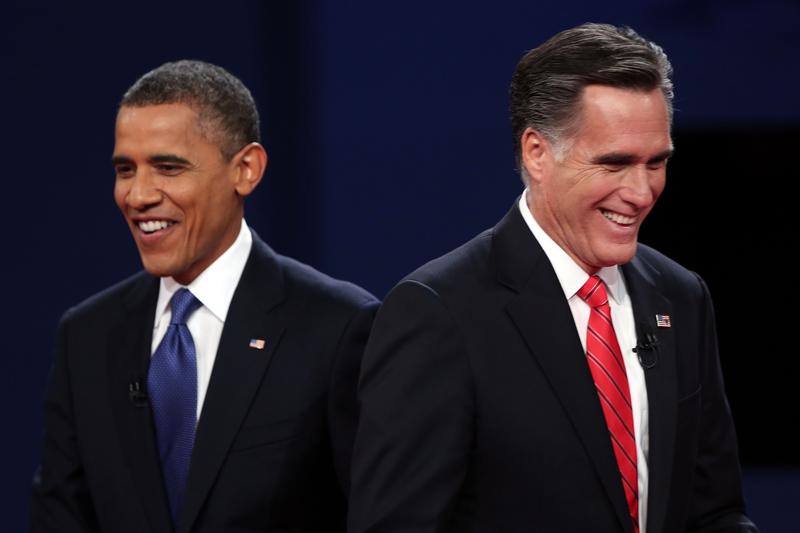
The largest Rotary club in Iowa asked me to talk about how to predict the 2012 election. Like a fool, I agreed.
Anyone following the election knows that Obama and Romney go up and down in polls from day to day and week to week. Meanwhile, most news media breathlessly reports every tick upward or downward. And they hyperventilate about what state each candidate has to win to snag the White House.
My advice to the Rotarians was not to look at individual polls. Instead, I recommended the following two indicators that are helpful and, I’ve found, more accurate.
First, there are several so-called meta models that look at massive amounts of data and run ginormous simulations of potential election outcomes. These statistical, mathematics-driven exercises overcome some of the distortions and snapshots of voter opinion that distort daily polls.
The best known, of course, is Nate Silver’s projections in the New York Times’ FiveThirtyEight blog. Silver has been tracking the polls and looking at Obama and Romney since Romney clinched the GOP nomination. Republicans have attacked him for mixing “secret sauce” and bias in predicting that Obama would win. Here is what Silver has to say:
“The simplest analysis of the polls would argue that Mr. Obama is winning. He’s been ahead in the vast majority of polls in Iowa, Michigan, Minnesota, New Mexico, Nevada, Ohio, Pennsylvania and Wisconsin, and all the other states where the Democrat normally wins. These states add up to more than 270 electoral votes. It isn’t complicated. To argue that Mr. Romney is ahead, or that the election is a “tossup,” requires that you disbelieve the polls, or that you engage in some complicated interpretation of them. The FiveThirtyEight model represents a complicated analysis of the polls, but simplicity is on its side, in this case.”
In Silver’s projections, Obama has a 75 percent chance of winning the election.
The Princeton Election Consortium is also an excellent metric. Visit the group’s Web site to see some of Sam Wang’s great graphics that show Obana is “peeling away. … From the electoral vote (EV) estimator.” This means he is “the candidate with the momentum,” and since the first presidential debate “the indicators are still headed straight up.”
As far as meta models go, I also have liked Drew Linzer’s Votamatic projections. He is an assistant professor of political science at Emory University. He demonstrates that some state polls have been inaccurate by a consistent percentage favoring Romney. If you listen to Rush Limbaugh and conservatives it should be so-called “liberal” polls that are deliberately skewed to favor the president.
Linzer concludes in his latest posting that “there’s essentially no time left in the campaign for preferences to change any further: if the state polls are right, then Obama is almost certain to be reelected.”
Second, I like the political futures stock markets. Most people have never heard of these but they are a very elegant way to assess what so-called “crowd intelligence” is saying about the elections. These stock markets actually sell futures shares for real money to “investors” who can then cash out once the election is over and either make or lose their investment.
The political futures markets are also on board predicting that the president will be reelected:
•BetFair markets 67.8 percent chance Obama will win a second term
•InTrade markets 61.7 percent chance
The Iowa Electronic Markets 61.8 percent chance
For several years I have won the political science department trophy for correctly predicting the Electoral College results by using InTrade and the University of Iowa Electronic Markets as the final indicator!
Looking over this vast landscape and the promises by various pollsters that they will bet money or eat bugs if they are wrong, I can’t help but assume that Barack Obama will be reelected.